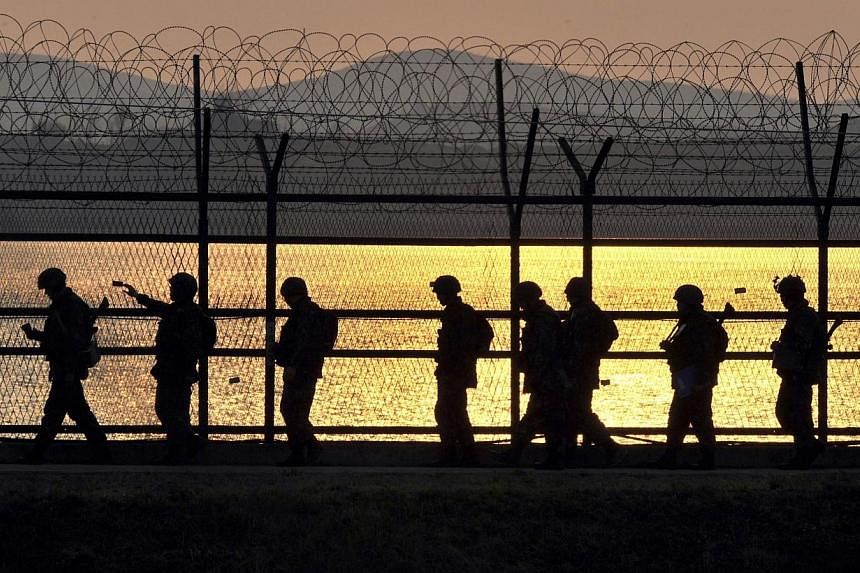SEOUL (AFP) - South Korea's top court on Thursday acquitted a man accused of sympathising with North Korea by retweeting posts by its government, arguing his action poses little threat to national security.
Mr Park Jeong Geun, a 26-year-old photographer, was arrested and charged in 2012 of violating the National Security Law by retweeting posts by the North's official Twitter account. A district court handed Mr Park a suspended jail term but an appellate court later found him innocent.
The Supreme Court of Korea upheld the acquittal, after prosecutors appealed the ruling, saying his actions "did not pose tangible threats to national security". Mr Park has argued his retweets, including posts like "Long Live General Kim Jong Il", were meant to ridicule the North's leaders and its rigid Stalinist system rather than praise them.
Under the notorious anti-communist law, South Koreans are banned from activities deemed to be praising or sympathising with the North, which still remains at war with the South technically.
The isolated North joined Twitter in 2010 and has posted 11,000 tweets that mostly blast its major foes - the South and the United States - and praise its ruling Kim family.
It has nearly 20,000 followers.
Several rights groups voiced concerns over Mr Park's case, with Amnesty International in 2012 saying the law had a "chilling effect" on freedom of expression.
The two Koreas technically remain at war after the 1950-1953 Korean War ended with a ceasefire instead of a full peace treaty.
Cross-border ties have been icy in general since 2008 when the conservative administration replaced the past liberal governments known for conciliatory posture towards Pyongyang.

